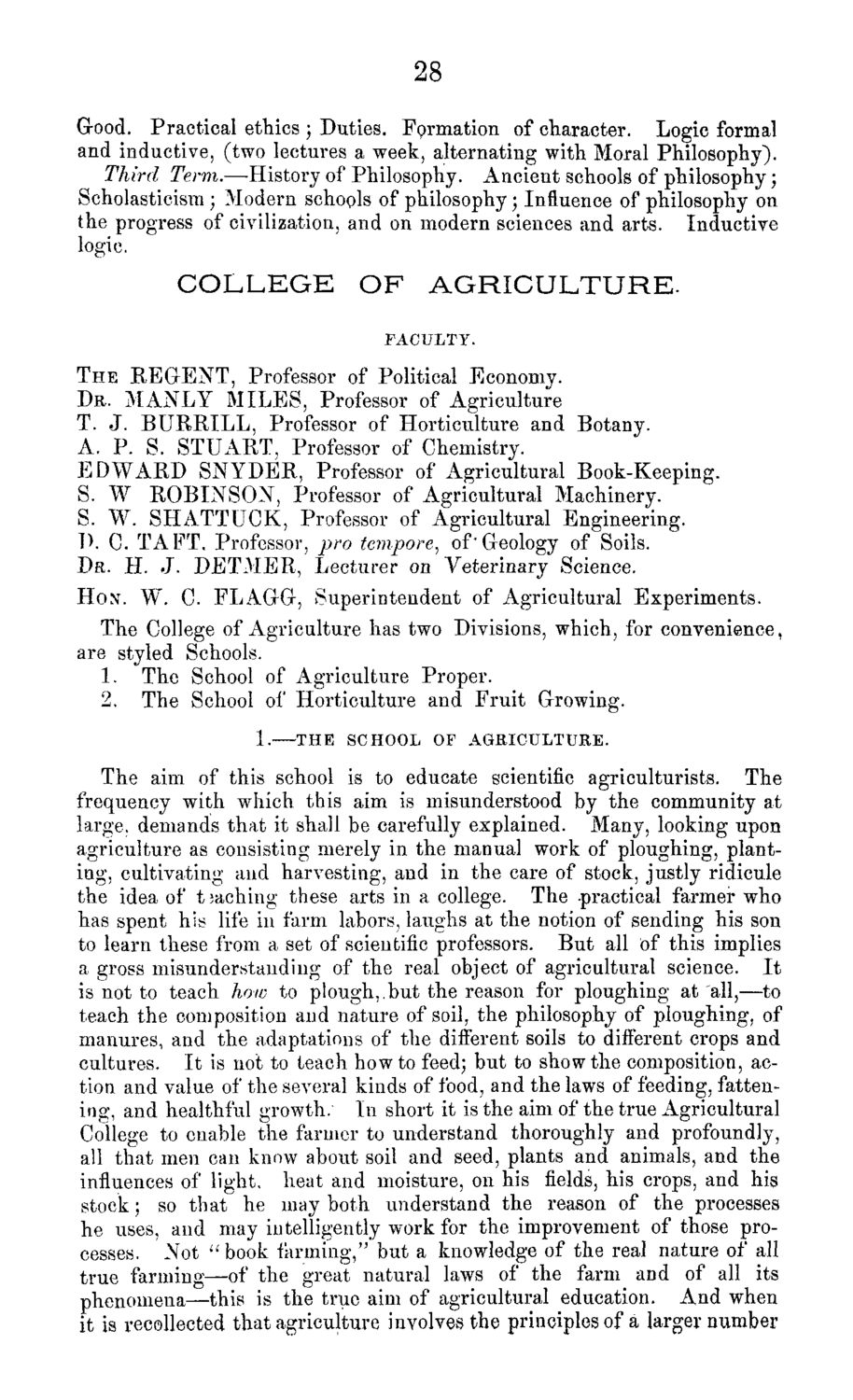| |
| |
Caption: Course Catalog - 1870-1871
This is a reduced-resolution page image for fast online browsing.

EXTRACTED TEXT FROM PAGE:
28 Good. Practical ethics ; Duties. Formation of character. Logic formal and inductive, (two lectures a week, alternating with Moral Philosophy). Third Term.—History of Philosophy. Ancient schools of philosophy; Scholasticism ; Modern schools of philosophy; Influence of philosophy on the progress of civilization, and on modern sciences and arts. Inductive logic. COLLEGE OF AGRICULTURE. FACULTY. THE REGENT, Professor of Political Economy. DR. MANLY MILES, Professor of Agriculture T. J. BURRILL, Professor of Horticulture and Botany. A. P. S. STUART, Professor of Chemistry. EDWARD SNYDER, Professor of Agricultural Book-Keeping. S. W ROBINSON", Professor of Agricultural Machinery. S. W. SHATTUCK, Professor of Agricultural Engineering. D. C. TAFT. Professor, pro tempore, of' Geology of Soils. DR. H. J . DETMER, Lecturer on Veterinary Science. How W. C. FLAGG, Superintendent of Agricultural Experiments. The College of Agriculture has two Divisions, which, for convenience, are styled Schools. 1. The School of Agriculture Proper. 2. The School of Horticulture and Fruit Growing. 1. THE SCHOOL OF AGRICULTURE. The aim of this school is to educate scientific agriculturists. The frequency with which this aim is misunderstood by the community at large, demands that it shall be carefully explained. Many, looking upon agriculture as consisting merely in the manual work of ploughing, planting, cultivating and harvesting, and in the care of stock, justly ridicule the idea of t:aching these arts in a college. The -practical farmer who has spent his life in farm labors, laughs at the notion of sending his son to learn these from a set of scientific professors. But all bf this implies a gross misunderstanding of the real object of agricultural science. I t is not to teach how to plough,.but the reason for ploughing at "all,—to teach the composition and nature of soil, the philosophy of ploughing, of manures, and the adaptations of the different soils to different crops and cultures. It is not to teach how to feed; but to show the composition, action and value of the several kinds of food, and the laws of feeding, fattening, and healthful growth. In short it is the aim of the true Agricultural College to enable the farmer to understand thoroughly and profoundly, all that men can know about soil and seed, plants and animals, and the influences of light, heat and moisture, on his fields, his crops, and his stock; so that he may both understand the reason of the processes he uses, and may intelligently work for the improvement of those processes. Not "book farming," but a knowledge of the real nature of all true farming—of the great natural laws of the farm aDd of all its phenomena—this is the true aim of agricultural education. And when it is recollected that agriculture involves the principles of a larger number
| |